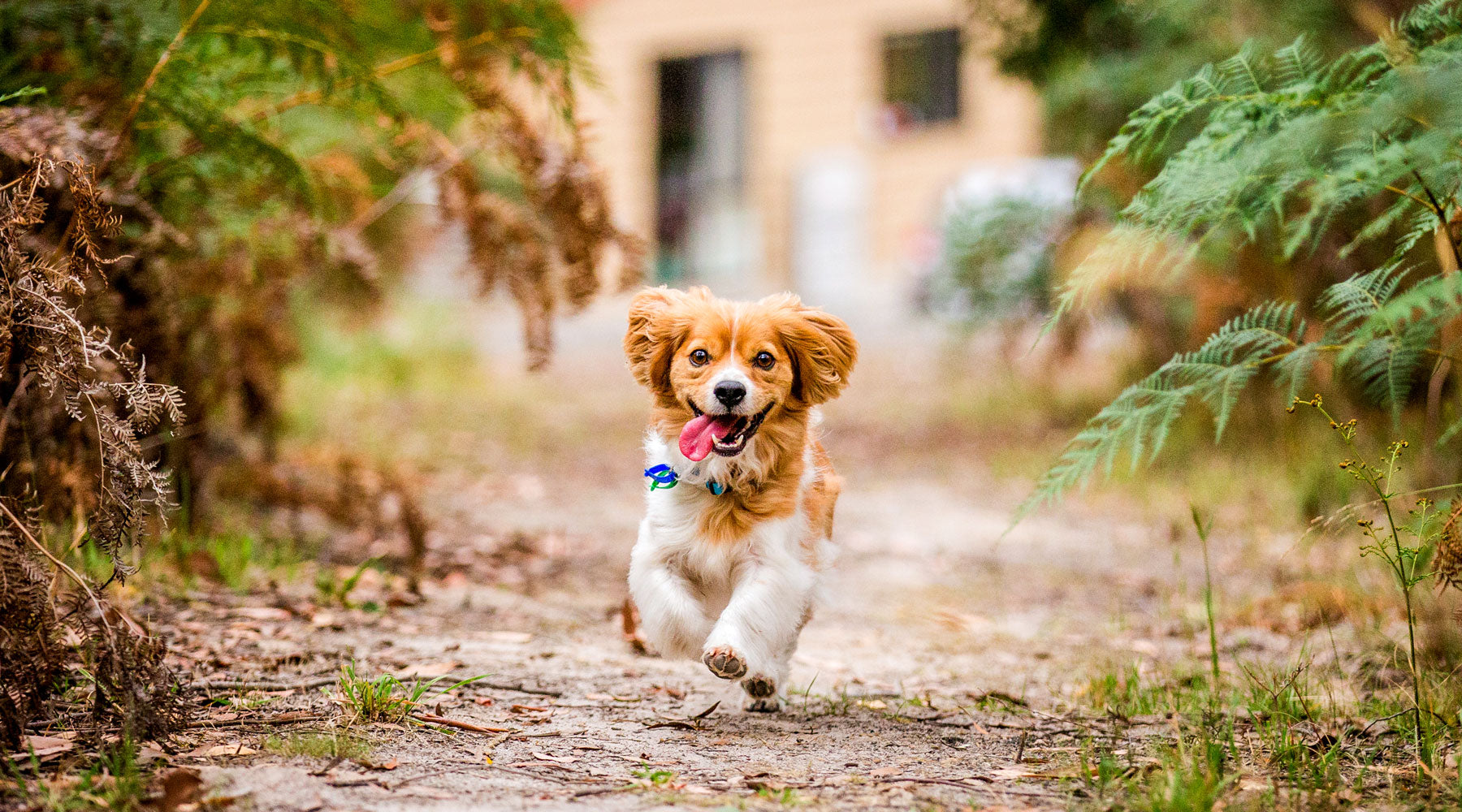Bringing home a new puppy is an exciting time and there is lots to do before the fun begins. Whether you're a first time puppy parent or adding to an existing fur family there is plenty to consider. If you have your heart set on a particular breed of dog, be sure to do your research before you commit. Some dogs, like purebreds, in particular can be predisposed to a number of genetic health conditions and it pays know what you’re getting yourself into before you bring one home.
Every year in Australia thousands of dogs and cats are surrendered to animal shelters and pounds, with many of these animals euthanised because a suitable home cannot be found.
Before heading to a pet store or breeder, consider whether you could instead offer a loving home to a puppy or adult dog in need. Dogs, puppies and other pets are available for adoption from the RSPCA, Animal Welfare League, PetRescue and other local rescue organisations.
The New Puppy ChecklistPuppy treatsWater bowlsBed and blanketsPuppy shampooNail clippersHarnessCrate
Puppy Tips
1. Provide a safe space with all their essentials
2. Get into a routine early on
3. Try to feed the same diet as the previous home and transition to new food slowly
4. Try to bring home unwashed bedding from their previous home, to provide a familiar smell
5. Consider placing a watch or clock in their bed to mimic littermate heartbeats
6. Introduce any other existing pets slowly over a few days
How long should my puppy sleep?
It's perfectly normal for puppies to sleep about 15 to 20 hours a day!
Does my dog need a bed?
Dogs will naturally seek out a soft place to sleep, so a comfortable dog bed of their own is always recommended. Even if you're happy for your dog to sleep on the bed with you, it's still a good idea to provide a bed on the ground in case.
For outside dogs, a kennel or enclosure is important all year round as it can provide shade on hot sunny days and a warm place to curl up on cooler nights.
Microchipping and registration
In Australia, microchips are used for lifelong identification. The microchip is a small metal chip the size of a grain of rice. It gets inserted under the skin via a needle, in the area between the shoulder blades or lower neck. The microchip only contains one piece of information a 12 digit number. This number gets recorded in a central database, where your contact details are then stored. Microchips can be scanned with a special hand-held device at any vet clinic, pound, or shelter.
Your dog's microchip is for life - If you change phone number, address, or email, always remember to update the database. If your pet is ever lost, this may be the only means of getting them safely back to you!
Depending on where you live, your dog may also need to be registered with your local council or you could receive a fine. To find out more about whether your dog needs to be registered contact your local council.
Vaccines
Typical vaccinations for puppies involve 3 injections spaced approximately 4 weeks apart. These usually occur at 6-8 weeks of age, 12 weeks of age, and 16 weeks of age but can vary depending on your location and the type of vaccine your vet uses. Once the puppy series has been completed your dog will need yearly, or in some cases three yearly, vaccinations for life.
Remember that vaccinations can take up to two weeks to have their full effect, so unless your vet has advised otherwise avoid taking your puppy out and about, particularly to dog parks, beaches and other dog hotspots until 2 weeks after they have had their final vaccination.
Worming and other parasite treatments
Fleas and ticks are most active in warm tropical and subtropical areas, particularly during spring and summer. In some areas of Queensland and New South Wales is not uncommon for cases of tick paralysis to be seen year round. While the need for tick prevention may be seasonal in your area, we recommend that flea prevention is used year round to prevent flea eggs, larvae and pupae building up in the environment. This helps to avoid the sudden 'explosion' in flea numbers that can be seen with the onset of spring.
Infestations with intestinal worms (roundworm, hookworm and whipworm) in puppies can be life threatening, so worming is an absolute must. Due to their smaller size and novel immune system, puppies are particularly sensitive to parasite infestations. Your pup's intestinal worming program should be started by the breeder, shelter, or pet store by 4 weeks of age.
Heartworm prevention needs to be maintained for life. You can either choose to get a heartworm injection at your vet (usually given at 12 weeks, 6 months of age, and then every year), or you can give a monthly product yourself at home. Monthly products usually combine heartworm with intestinal worming, and some even combine flea and tick treatments in the mix too!
Desexing
Desexing puppies before he or she reaches sexual maturity (from 4 to 6 months of age) will prevent unwanted pregnancies as well as reducing roaming behaviour and territorial marking. Not only that, female dogs who are desexed before their second heat have a significantly reduced risk of mammary cancer and uterine infection. Male dogs who are desexed are less likely to experience prostate problems and are not affected by testicular cancers.
Most vets will recommend desexing your puppy at about 5 to 6 months of age, although in some cases puppies can be desexed as early as 8 to 16 weeks depending on the size and breed of the dog. RSPCA Australia supports early age desexing as an effective way to reduce unwanted pregnancies and re-home dogs as soon as possible.
Dental care
While they are teething your pup will probably start to chew on everything, so make sure you give them plenty of appropriate chew toys to save your shoes and furniture. Until your pup has all their adult teeth avoid giving harder dental chews or bones as baby teeth are a little more delicate and may break if they chew hard objects.
Once all your pup's adult teeth are through (usually by about 6 months), it's time to start thinking about how you will care for their dental health throughout their life. Veterinary dentists recommend daily tooth brushing as the gold standard for dog dental care, and the earlier you start the easier it will be for your dog to accept this. Try to get your puppy used to having their mouth examined and handled from an early age.
Nutrition
Puppies gradually wean off their mother's milk and begin to be able to eat solid food from 8 weeks of age, so this is considered the minimum acceptable age to remove them from their mother, but more time with their mother is always a good thing!
What your puppy eats in the first year of life has a direct effect on their growth, bone development and immune system. It also influences their risk of developing obesity later in life. Puppy food has the right balance of energy, protein, fat, calcium and phosphorus to help your puppy develop properly. It is also highly digestible which is good for sensitive stomachs. Depending on your puppy's breed and size they will need to stay on puppy food from 10 to 24 months of age.
Look for premium diets based on scientific research and development from brands including Prime100 or Man’s Best.
Puppies need to eat more frequently than adult dogs. Up until the age of about 5 to 6 months it's recommended to split your puppy's daily feeding amount into 3 separate meals.
Knowing how much to feed of a particular food can be tricky; the ideal feeding amount will vary from formula to formula and depends on your puppy's age and weight. To work out how much to feed your puppy, consult the feeding guidelines on the food packaging and use this as a starting point, adjusting the amount up or down depending on your puppy's needs.

